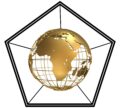Abstracts
Joaps-vol-18-no-1-2012
Anti-Corruption Inspections: A Missing Element of the IMF/World Bank Agenda?
By Stuart S. Yeh
This article draws upon a range of empirical and theoretical literature to advance a theoretical argument that an international treaty is needed to establish international inspectors who would be empowered to conduct independent investigations into allegations of corruption. This type of treaty could serve to deter and reduce the level of corruption in sub-Saharan Africa, thereby promoting the rule of law, good governance, and economic growth in this region. In this view, a change in international law is needed to deter corruption and lay a foundation for good governance that would permit Western assistance to be effective. In contrast, the IMF and World Bank have implemented structural adjustment programs predicated on the assumption that Western assistance, in the form of aid, loans and conditions attached to loans, can be effective when it is channeled through the same dysfunctional domestic institutions that are the source of corruption, poor governance, and poor economic performance. Evidence suggests that IMF and World Bank programs have negative impacts on economic growth rates, implying that suspension of these policies, together with the implementation of an international treaty establishing international inspectors, could have positive effects on economic growth.
Associate Professor, University of Minnesota, Department of Organizational Leadership, Policy and Development
Insecurity and the African State: The Myth and Reality of Armed Non-State Actors
Eliza M. Johannes*
Armed non-state militia groups of different shades – comprising rebels, criminals, extremist religious militants, and other opportunistic outfits – have played a significant role in creating instability and undermining human security in Africa. The militia and rebel groups, including the Islamist militant groups have fomented unending ethnic and religious tensions and conflicts in the region. Cognizant of this state of affairs, in this paper I analyze and try to explain the rise of some notable militia groups in Kenya, Uganda, South Sudan, the Democratic Republic of Congo (DRC), and the Central African Republic. While focusing on the Mungiki, the Mombasa Republican Council (MRC) in (Kenya), the LRA of Uganda, the militias under Southern Sudan Defense Force (Sudan), the Democratic Forces for the Liberation of Rwanda (FDLR), and the
National Congress for the Defense of the People (now M23) Rebels in the (DRC), I argue that these groups have had debilitating and destabilizing consequences for good governance in those countries and their neighbors. In the paper, I postulate that the groups emerged due to poor national leadership, which marginalized some communities by creating economic imbalances perceived to favor certain communities and classes. The actions have bred poverty and disparities in the resource and service allocation among the different ethnic groups. Consequently, the actions of these groups not only contributed to regional conflicts but also have created instability, underdevelopment, and insecurity in the different African states. In an attempt to address these issues, I examine the rise of these rebels groups with a focus on their objectives, ideological or political orientation, and sources of funds and analyze how communities and the states in the region have responded.
Eliza M. Johannes, Ph.D. is a researcher at the Institute for Defense Analysis.
Waste of colossal Oil Revenues, Corruption and lack of Development in Nigeria: Five Decades of SelfGovernance and Four Decades of Oil Driven Economy
By Tonyesima Furro, Ph.D
The study examines the circumstances that have continually plagued the Nigerian state to remain in its doldrums of underdevelopment after five decades of self-governance and four decades of oil driven economy. The nation has not been able to catapult itself from a Third World to that of developed nation such as South Korea, Singapore and Malaysia – all of which are less naturally endowed than Nigeria. The nation’s economy has been supported by oil over the last 40 years. However, successive administrations both the generals and civilian rule have continued to follow similar patterns of squandering vast resources of the golden era of the nation’s prosperity in terms of oil windfall that could have contributed to a significant socioeconomic transformation of the nation. In the meantime, most of the infrastructures – roads, bridges, railways airports, seaports, education are in a state of perpetual disrepair. At this stage of Nigeria’s self-governance, the electrical power fails in an unnerving frequency, so much so that most of the manufacturing companies have been relocated to other West African countries. In the face of this, there is a wholesale looting of the nation’s treasury, and this state of affairs have been emboldened by the poorly functioning bureaucracies and weak public administration that does not hold public officials accountable for their malfeasance. As a consequence, today, Nigeria with its enormous resources and oil wealth remains significantly less industrialized than other West African countries of Ghana or Sierra Leone with no adequate resources like Nigeria. The Nigerian state was underdeveloped in 1960 when it was decolonized from Britain, and it remains essentially the same 50 years later.3
Tonyesima Furro is Associate Professor of Social Work at Albany State University, Georgia, USA
